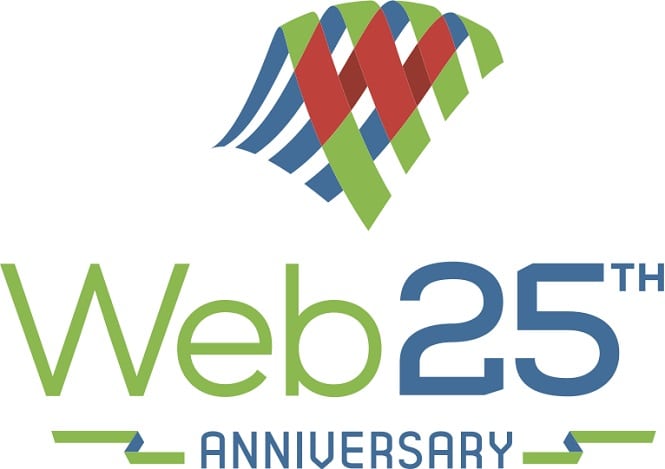Happy Birthday Web!
In case you didn’t know today is the world wide web’s 25th birthday. This guy at CERN (European Organization for Nuclear Research) named Tim-Berners Lee wrote out a paper called “Information Management: A Proposal.” While this sounds pretty boring it would have profound changes to the way people work, communicate, interact, socialize, distribute information, buy items, and basically everything else.
On Google’s Official Blog Tim Berners-Lee wrote a guest post about his invention.
Though CERN, as a physics lab, couldn’t justify such a general software project, my boss Mike Sendall allowed me to work on it on the side. In 1990, I wrote the first browser and editor. In 1993, after much urging, CERN declared that WWW technology would be available to all, without paying royalties, forever.
That would have sucked it everyone had to pay royalties.
By design, the underlying Internet and the WWW are non-hierarchical, decentralized and radically open. The web can be made to work with any type of information, on any device, with any software, in any language. You can link to any piece of information. You don’t need to ask for permission. What you create is limited only by your imagination.
Note, he did not mention a fat annoying ex-Vice President (Al Gore) as having created the internet. Berners-Lee continues in the guest post.
So today is a day to celebrate. But it’s also an occasion to think, discuss—and do. Key decisions on the governance and future of the Internet are looming, and it’s vital for all of us to speak up for the web’s future. How can we ensure that the other 60 percent around the world who are not connected get online fast? How can we make sure that the web supports all languages and cultures, not just the dominant ones? How do we build consensus around open standards to link the coming Internet of Things? Will we allow others to package and restrict our online experience, or will we protect the magic of the open web and the power it gives us to say, discover, and create anything? How can we build systems of checks and balances to hold the groups that can spy on the net accountable to the public? These are some of my questions—what are yours?
On the 25th birthday of the web, I ask you to join in—to help us imagine and build the future standards for the web, and to press for every country to develop a digital bill of rights to advance a free and open web for everyone. Learn more and speak up for the sort of web we really want with #web25.
Thanks to Sir Tim-Berners Lee and everyone who keeps the internet humming along. Happy Birthday Web!
How will you celebrate the web’s 25th anniversary? Can you think of something you can do to improve the internet?








